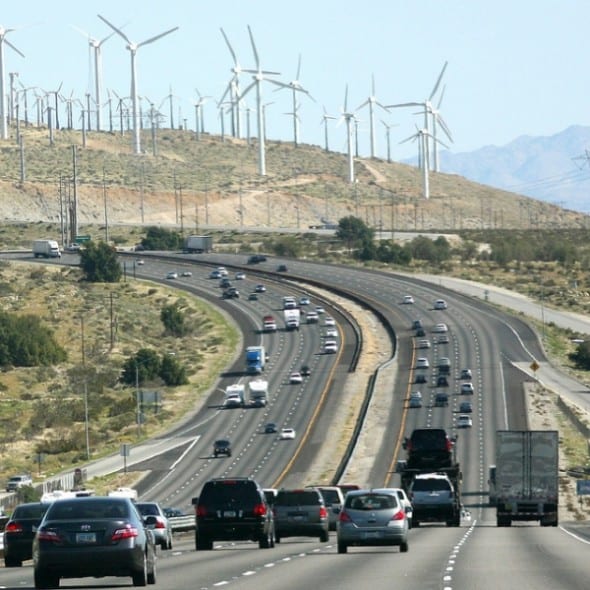A post-Coronavirus “lockdown” should be extended to fossil fuel consumption across all sectors of all economies if the world is to have any hope of achieving the sort of emission reductions required to stop catastrophic global warming, a new report says.
The latest annual Renewables Global Status Report from REN21, an independent policy organisation, has marked another record-breaking year for renewable energy in 2019 – not least for Australia, which now ranks fifth-highest in the world for non-hydro renewables per capita.
Installed power capacity grew more than 200 gigawatts (GW) – its highest increase ever, and the private sector signed power purchase agreements (PPAs) for a record amount of renewables capacity, driven in large part by ongoing cost reductions in some technologies.
Wind and solar energy have become mainstream electricity sources, the report says, and nearly everywhere in the world producing electricity from new renewables is more cost-effective than producing it from new coal-fired power plants.
But this is not enough. Rather, the report says, the journey towards climate disaster continues, unless there is an immediate switch to renewable resources and zero-emissions technologies in all sectors.
“Year after year, we report success after success in the renewable power sector,” said REN21’s executive director Rana Adib.
“Many national and global organisations already cry victory. But our report sends a clear warning: The progress in the power sector is only a small part of the picture… If we do not change the entire energy system, we are deluding ourselves.”
REN21, like numerous other research and policy groups in Australia and internationally, sees the global slowdown wrought by the Covid-19 pandemic as the ideal opportunity for a major re-think of how we fuel our future economies.
“Covid-based stimulus should be invested in assisting the transition in industries other than power, such as manufacturing and transport and policies and power infrastructure needs upgrading,” the report says.
“But we are continuing to lock in fossil fuels despite record growth in renewables – the world is largely coasting on decisions made decades ago so a new push is needed.”
This is certainly the case in Australia, where another raft of federal stimulus spending was announced on Monday with only the slightest of greenish tinges – the promise to fast-track the development of a new power transmission link between Tasmania and the mainland.
Spending on incentives to drive the construction industry completely missed the opportunity to push for a higher standard of energy and thermal efficiency in Australian housing. And spending on transport fuel signals a deep-seated policy denial of the shift to electric vehicles.
All of this stands in stark contrast to Australia’s progress on renewable energy generation, which puts it in the global top 10 despite scanty federal policy support and the 2019 decline in investment.
In the non-hydro renewable stakes, Australia ranks among of top five countries in the world, for capacity per inhabitant – and second in the world for solar PV, alone.
Wind energy, as RenewEconomy reported on Monday, saw records for both installations and output in 2019, and surpassed hydropower to become Australia’s largest renewable source of electricity.
And Australia also got a mention for being one of only a handful of countries advancing on hydrogen production, specifically from renewable sources.
But Australia also fits firmly into the category of countries whose Covid-19 recovery packages stand to lock them further into a dirty fossil fuel system.
“Some directly promote natural gas, coal or oil,” Adib notes, without naming country names. “Others, though claiming a green focus, build the roof and forget the foundation,” she adds.
“Take electric cars and hydrogen, for example. These technologies are only green if powered by renewables.”
Because it bears repeating, the report points out that “green” recovery measures, like investment in building efficiency, are more cost effective than traditional stimulus measures and yield more returns – including job creation, energy sovereignty, and reduced emissions and air pollution.
“When spending stimulus money, we have to decide: Do we want an energy system that serves some or a system that serves many?”, said Adib.
“But it’s not only about money. We must end any kind of support to the fossil economy, particularly when it comes to heating, cooling and transport.
“Governments need to radically change the market conditions and rules and demonstrate the same leadership as during the Covid-19 pandemic.”
RenewEconomy and its sister sites One Step Off The Grid and The Driven will continue to publish throughout the Covid-19 crisis, posting good news about technology and project development, and holding government, regulators and business to account. But as the conference market evaporates, and some advertisers pull in their budgets, readers can help by making a voluntary donation here to help ensure we can continue to offer the service free of charge and to as wide an audience as possible. Thank you for your support.










